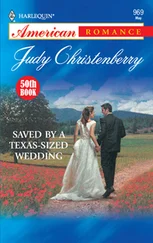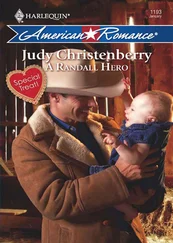I think people are moving away. I don’t see our neighbors peering from behind their curtains anymore. “They’re dead,” says Pat, “The government comes with trucks and clears them out in the middle of the night, when we’re asleep.” I think he’s teasing. Maybe not.
I play in the yard with Prince. I throw the ball. He chases it, brings it back to me in his mouth.
My dad, watching us, says, “He’s not a dog, he’s a man, for God’s sake. Treat him like a man.”
But we ignore him. I throw, Prince fetches. We are having an all-American good time, just like Dick and Jane and Spot in the reader. After my dad leaves, I sing all of Rick Dees’s favorite songs for Prince. Prince likes that. He barks with me.
I tell Prince all kinds of things. I know he won’t laugh, like Eliott, or punch me, like Pat does. He presses against me, all warm and furry. He would never hurt me. I am taller than he is anyway.
His face is so kind: warm, wet, blank eyes.
I have little pink bumps on my legs. Fleabites, I think, but I won’t tell my mother.
“If he ever hurts you, tell me right away,” says my dad.
Prince would never hurt me.
My dad thinks everybody thinks like him.
One day I see my dad in the yard, talking to Prince. “You’re a human being, for God’s sake. Stand up like a man. Listen to me! Take off that Halloween costume shit. I’ll give you my own clothes if you’ll take it off and stand up like a man and talk to me. I know you can talk. Come here, you.” And he grabs for the dog suit, tries to pull it off. Prince runs away.
One night Eliott says, “Well, you know what they say. Man’s best friend.”
Pat says, “Don’t let him touch you. You want to end up with a litter of puppies?”
He and Eliott snigger and lean in together, their faces all twisted. Pat’s face is rotten with pimples. He doesn’t have any cream to put on them, so they are getting worse and worse.
Sometimes at night I creep downstairs and out on the porch, and Prince is there sleeping or waiting. I curl up beside him and bury my face in the rough, sick-smelling fur. Prince gives my hand a lick. That is his way of saying good night.
November: The army trucks, with their ration packages and bottles of water, stop coming.
The sky is a curdled yellow color. It seems like most of our neighbors have gone on vacation, or died or disappeared or moved away, or something.
We seem to be losing.
The silence is deafening.
In December Eliott and Pat break into some houses at night, looking for food. An army patrol brings them back. If they do something like this again, they will be taken away for good.
“Taken away where?” I say. No one will tell me.
My father has a dark look all the time now, as if a black mildew is growing and spreading on him.
“Maybe it wouldn’t be so bad, to get out of this shithole,” says Pat. But he and Eliott stay in at night.
There is nothing to eat. My mother has scoured the house. She tries making us a salad of grass and things. It makes me throw up.
I find a bottle of Flintstones chewable vitamins in the back of my drawer. I don’t want to share. I eat a whole handful and it gives me a horrible stomachache.
My legs are nice and thin now. And my bones stick out of my face in a nice way. I look like the models in the magazines. I know this because I spend a lot of time in my room now, looking in the mirror. I don’t want to be with my parents, or Pat or Eliott, so I sit with the mirror to keep me company. The mirror behaves. We have conversations. Sometimes if I squint really hard into the mirror, I can see Marjorie there, in the mirror room, smiling at me.
I’ve been writing things down in my diary, month after month. I’m beginning to lose track of the days. They all run together. I remember when every day was different: Monday was music day at school; Wednesday I had piano lessons; Friday I went to Marjorie’s house. Now they are all the same.
Sometimes I look in my closet and it surprises me to see all the clothes hanging there. Now I always wear the same shirt, and some pants all bunched up with a belt. There’s no reason to change. I remember my mother used to yell at me to put on clean underpants every day. Now they are all dirty and she is too tired to yell.
Every day I go downstairs and sit on the porch. Prince is still curled up there, shivering in the cold. My dad won’t let him in the house. And Prince won’t leave, even though we can’t feed him anymore.
He loves me. I can see this in his soft brown eyes.
I scratch him and sing to him. His fur is loose and baggy on him. I tell him secrets. Sometimes I pretend he is Rick Dees and we are on a fashionable date in his fancy car. Prince plays along, though he doesn’t really understand. Rick Dees and I have a romantic dinner at a fancy restaurant.
My mother stays in bed most of the time now. She asks that we not disturb her. Maybe she is imagining that she is somewhere else, someone else. But who else would she want to be? She’s my mother, she can’t be anything else.
My brothers stay in the basement. They are making plans down there, I think. They are stroking the magazine pictures, trying to pretend they are real. I know that by now the magazine pages must be all withered from their pawing. Looking at the fleshy naked women all day must make them hungrier.
Only my dad still goes out, every day, with his gun. He walks unsteadily, hanging on to things, but still he goes. He still seems to think there is something out there, something to put in the pot.
There’s nothing left. There hasn’t been for months. But he refuses to believe it.
Then suddenly it gets colder. Is it because of the war, because of a bomb? I wonder. Or is it just a very cold December? My mother comes downstairs, my brothers come upstairs, and we all settle in the living room. The bedrooms and the basement are too cold. It is warmer with all of us together, and the living room is better insulated. We hardly speak to one another. My brothers seem to speak by looks: They snicker suddenly, together, at nothing. And my parents speak with stares and shrugs. Me, I don’t look at anybody; I stay in my corner with my winter coat and my blanket. Two of my teeth are loose. They shouldn’t be.
I still spend a few hours a day with Prince on the porch. Most of the time he stays curled up against the side of the house, trying to steal some of the warmth. Once in a while he crawls around the yard, trying to warm himself up.
I’m too tired these days to sing. Just opening my mouth gives me a headache.
Prince understands. He is the only one who understands me.
Then one day I come in from the porch. It’s starting to get dark so early, now that it’s winter. I go into the living room and it’s all in shadow. I can’t see anyone’s face clearly; all I see are their teeth shining.
It is so quiet. Then I hear their breathing, each one of them separately, like singers not in harmony. They are all waiting for something.
“I wish I had a steak,” says Eliott, his voice strained and high.
A pause.
“In Africa they eat grubs and things. Maybe there are worms in the backyard,” says Pat.
“You can eat dandelion greens. I’ve heard of a dandelion salad,” says Eliott.
Pat says, “I heard in Korea people eat dogs.”
No one says anything. I can see the room get darker.
Then my dad stands up.
“What are you doing?” my mother says. He doesn’t answer.
“Where are you going? Howard—don’t—don’t—”
My dad is reaching for his gun. My brothers stand up.
“What are you doing? How can you even think of—”
They are walking slowly to the door.
“He’s a man, Howard! A man! You can’t—” my mother screams.
Читать дальше

![Brian Jacques - [Flying Dutchman 01] - Castaways of the Flying Dutchman](/books/128851/brian-jacques-flying-dutchman-01-thumb.webp)










